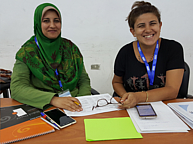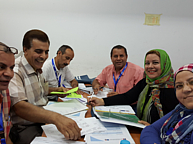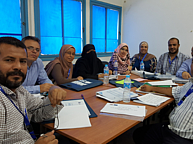Egypt

| Title | Screening and Assessment of TVET Programmes in Egypt |
| Type of project | Vocational Education & Training (VET), Lifelong Learning, Adult Education |
| Client | Ministry of Education, Egypt |
| Origin of funding | EU and Government of Egypt |
| Duration | 17/04/2016 - 16/03/2017 |
The overall objective of the project, of which this contract is part, is defined in the ToR as:
“To improve and enhance the structure and performance of the TVET system and TVET delivery in Egypt to better respond to the new socio-economic needs, in particular, youth employability and increased competitiveness in the context of the country’s current and future development.”
The reform of the TVET system in Egypt has been recognised, for now almost twenty years, by policy-makers, experts, donors, and the Government of Egypt (GoE) as a high priority, due to its potential role as a contributor to the reduction of unemployment, the promotion of social equity, and the enhancement of the country's global competitiveness. The first Cabinet formed after the 2011 Revolution identified TVET as one of the key priorities for the country. Following on from the EU-Egypt supported project “Reform of the Technical Vocational Education and Training system in Egypt” (TVET I), the GoE signalled its intention to prioritise TVET highly, specifically requesting that the EU continue and increase its support to the TVET sector in Egypt beyond the culmination of the project. This led to the identification of a new Programme "Support to the Technical and Vocational Education and Training Reform Programme in Egypt - Phase II (TVET II)”, co-financed by the GoE and the EU.
The present contract anticipates Component (2) of the TVET II Reform Programme and is focused on screening and assessment of TVET programmes, capacity building for curriculum developers, and development of new curricula relevant to the needs of the labour market.
Detailed objectives:
- To develop and test a methodology for screening and assessment of the demand of skills;
- To provide capacity building for curriculum developers for screening and assessment of TVET curricula;
- To create a pool of curriculum developers from Ministry of Education and Technical Education, Ministry of Higher Education, Ministry of Tourism, other relevant TVET institutions, and sectorial Enterprise TVET Partnerships (ETPs);
- To assess existing TVET programmes that may be no longer relevant for current labor market needs in the selected TVET institutions covering different sectors and identify of the new curricula needed by the labour market.
- To develop learning outcomes standards for existing TVET programmes that may be no longer relevant for the current labor market needs in the selected TVET institutions covering different sectors




